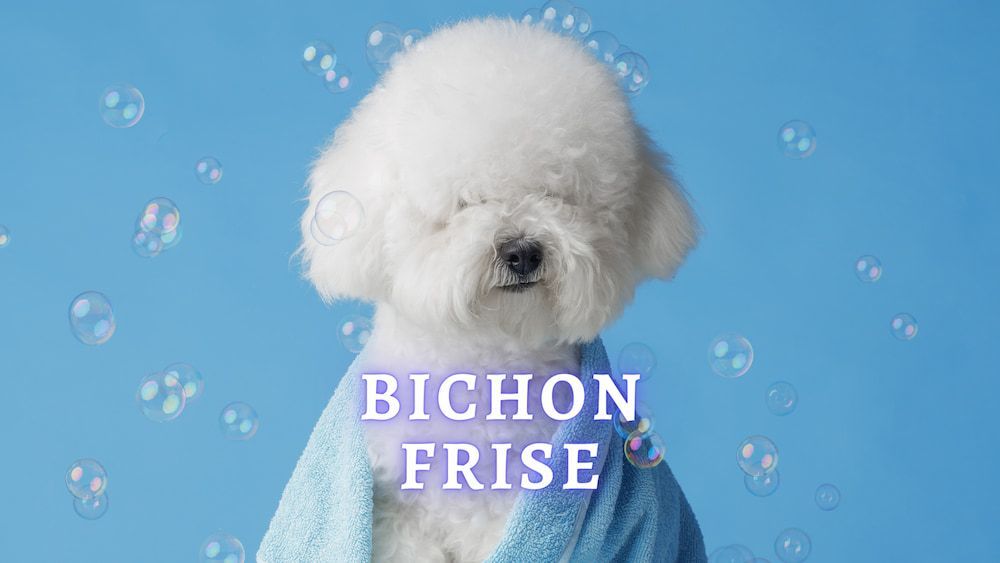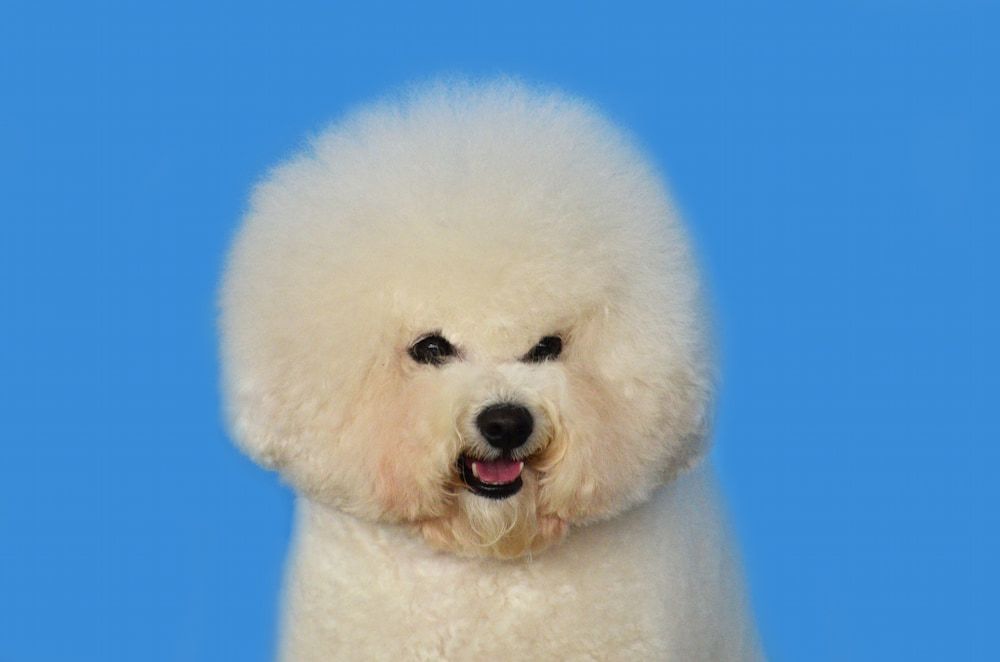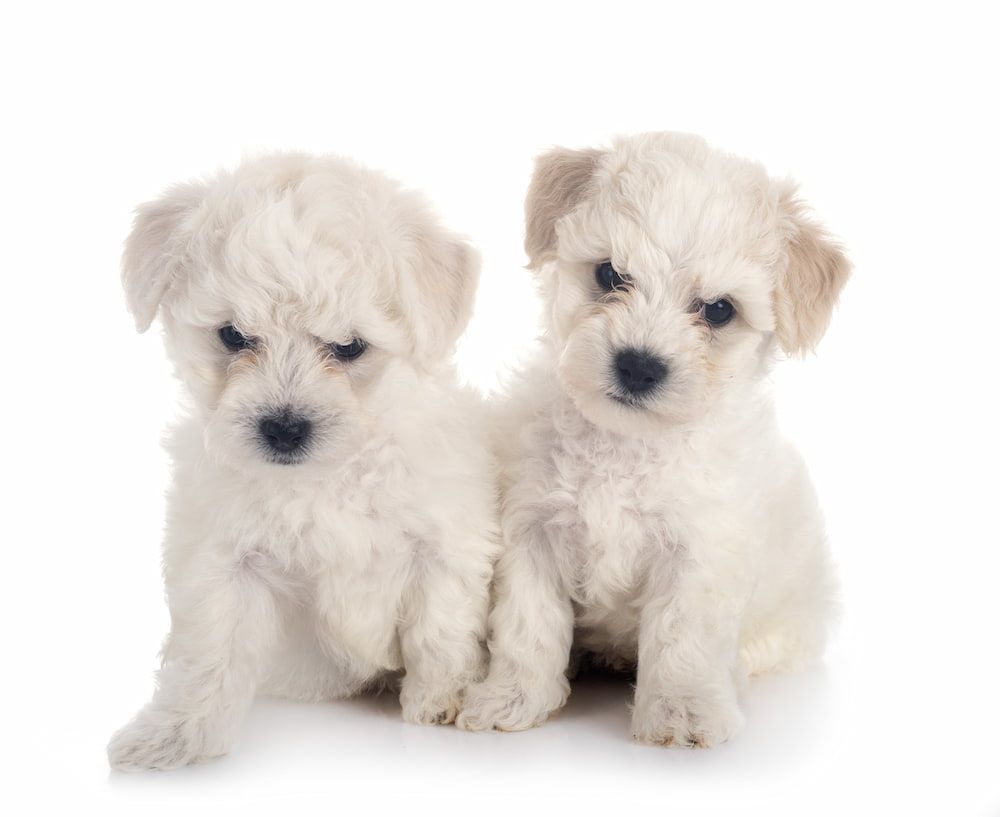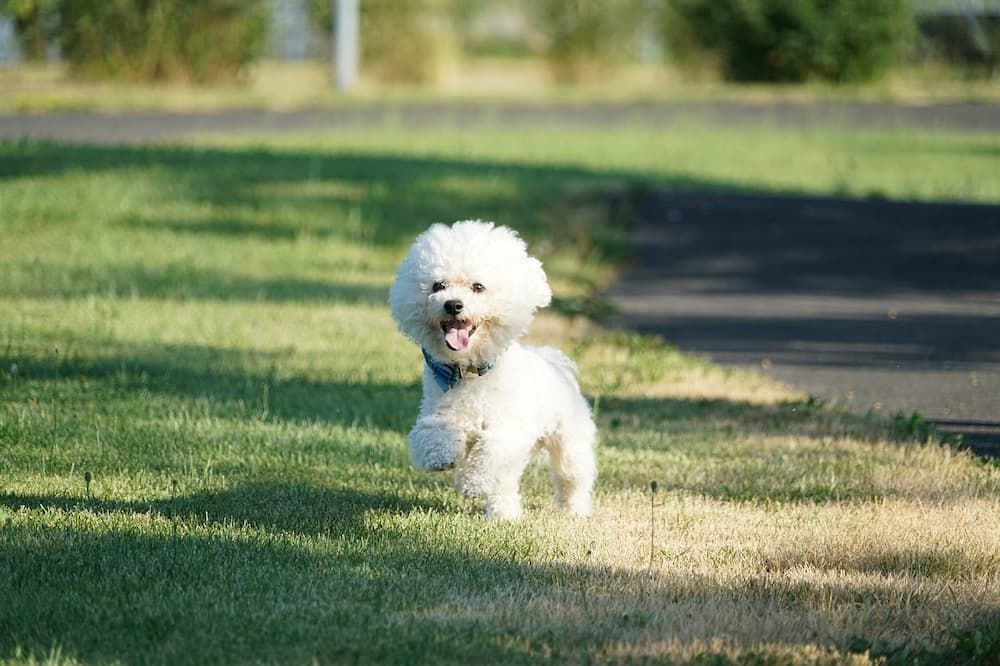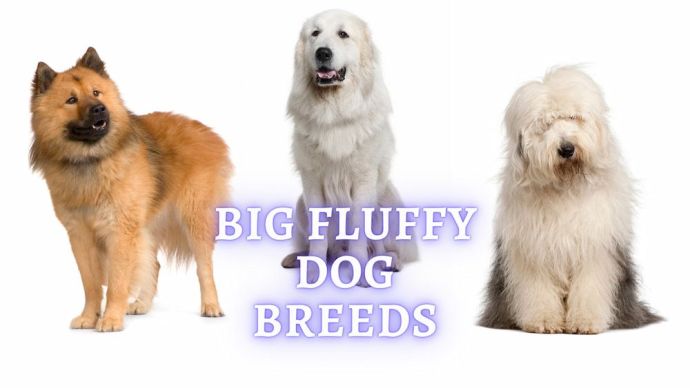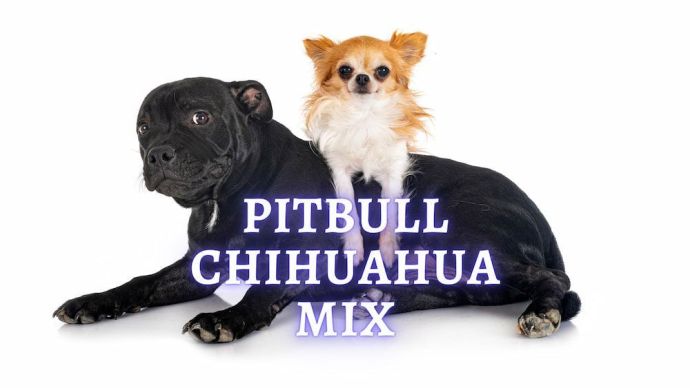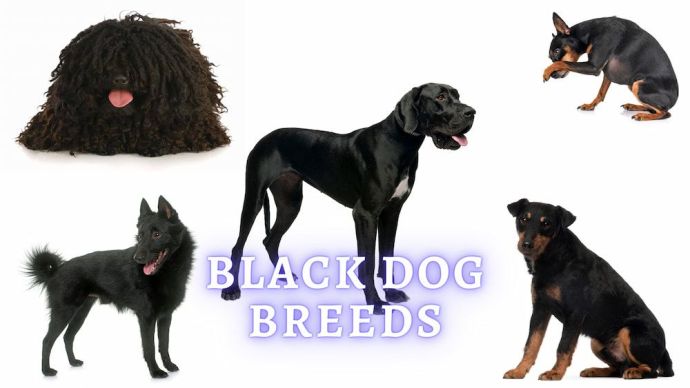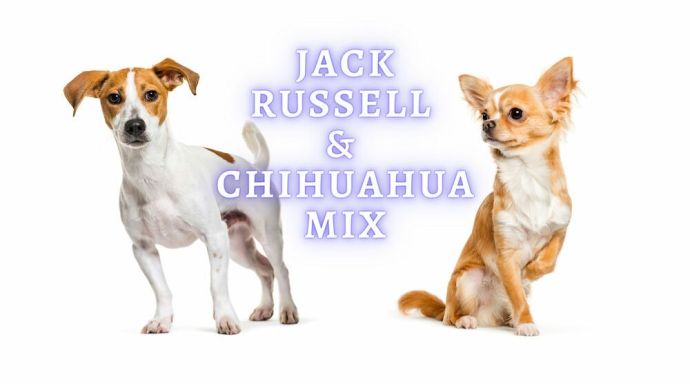Bichon Frise Dog Breed Profile – Everything You Need to Know
Written by:
Author: Seb Jenkins
Seb is a professional SEO writer with a degree in Journalism, he has five years of experience in writing and editing. Seb specializes in topics like dog and cat breeds, aquarium guides, and pet care. He is passionate about educating and entertaining animal owners worldwide. In his spare time, Seb enjoys writing fiction novels.
View all 83 articlesLearn about our editorial process and veterinary review board.
Viewed: 71
Updated on: 06/08/2023
The Bichon Frise is becoming an extremely popular household pet worldwide, and with good reason. Despite their small size, this little bundle of joy brings a big personality into the home. They are very active little dogs, not to mention entertaining and quirky. If you are looking for an exciting new addition to the family to keep you on your toes, then look no further.
For anyone looking to get a Bichon Frise, or anyone who recently has, it is essential to research information about the breed to ensure you are fully capable of taking care of your new best friend. Fortunately, we have created an all-you-need-to-know article on the Bichon Frise below.
Characteristics
The following are the main characteristics shown by the Bichon Frise:
| Height | 9.5-11.5 inches |
| Weight | 12-18 pounds |
| Lifespan | 14-15 years |
| Size | Toy dog |
| Coat | Short |
| Colors | White and cream |
| Shedding | Infrequent |
| Temperament | Playful, friendly, and outgoing |
| Intelligence | High |
| Social skills | Good with kids, other dogs, and cats |
| Barking | Infrequent |
| Energy levels | High |
Breed History
While we cannot pinpoint the exact origin of the Bichon Frise, we know a lot about the breed’s fascinating history. Most experts argue that the Bichon Frise likely descended from the Barbet, a medium-sized woolly breed. In fact, it appears the name Bichon comes from Barbichon, which is a derivative of Barbet. The Maltese, Havanese, Bolgnese, Coton de Tulear, and Bichon Frise breeds look similar, as they are all known under the Barbichon family.
You have to go back as far as the 14th century to find the first records of the Bichon Frise, with French sailors bringing them from Tenerife back to their native land – although it is thought they originated in Italy and were simply taken to Tenerife by traders. It is also said that the French brought as many Bichon Frise dogs as they could carry back to the country after invading Italy in the 1500s. A worthy treasure.
Whatever the case, it became instantly popular once the Bichon Frise became a known breed in Europe. As with many popular breeds at the time, it was quickly associated with nobility and could often be seen in the 16th-century royal courts. Stories say that King Henry III even carried his Bichon Frises around with him in a basket around his neck. They also became very popular with the Spanish royal family.
Unfortunately, the Bichon briefly lost its popularity again until the end of the 1800s, at which point it had lost its royal links and was seen more as a common breed. They were even trained as seeing-eye dogs and circus performers. If not for the pure intelligence of the breed, they could have quickly died out around this time. Fortunately, after the First World War, French interest picked up again, and preservation began.
From 1933 onwards, the Bichon Frise received official recognition from federations across France. They made the trip to the US in 1956 and were registered with the American Kennel Club in 1972. Fast forward to today, and they are still a popular member of the modern-day household.
READ MORE: Poodle and Bichon Frise Mix
Temperament and Personality
The one trait that the Bichon Frise is most known for is friendliness. They are simply a little, fluffy bundle of joy. Not only that, but they are a very outgoing breed, so they are more than happy to be the center of attention, which wins them many admirers.
However, even though the Bichon appears to be very independent, they should still be left alone for long periods. These dogs hate being left to their own devices and are likely to suffer separation anxiety. When this happens, you can put good money on destruction, including chewing, biting, tearing, and more. So if your house is empty for hours, the Bichon Frise is not for you.
The exact temperament of your particular Bichon Frise depends on a few things, including their parents, socialization, and training. You should look out for puppies that approach you and like to be picked up. And when looking at a litter, always pick the mean average. So avoid the Bichon in the corner on their own and avoid the one beating up their brothers and sisters. We also recommend meeting one or both parents to see what they are like.
| Adaptability | 4 out of 5 |
| Adapts to apartment living | 5 out of 5 |
| Energy levels | 5 out of 5 |
| Adapts to being alone | 1 out of 5 |
| Tolerates cold weather | 3 out of 5 |
| Tolerates hot weather | 4 out of 5 |
| All-around friendliness | 5 out of 5 |
| Affectionate with family | 5 out of 5 |
| Kid-friendly | 4 out of 5 |
| Dog friendly | 4 out of 5 |
| Friendly with strangers | 5 out of 5 |
| Health and grooming | 2 out of 5 |
| Shedding | 2 out of 5 |
| Drooling | 1 out of 5 |
| Easy to groom | 1 out of 5 |
| Easy to train | 5 out of 5 |
| Exercise needs | 3 out of 5 |
| Intelligence | 4 out of 5 |
Activity and Exercise Requirements
The Bichon Frise is an active little dog, despite what its size may suggest. However, rather uniquely, Bichon’s energy will come in bursts. One minute, they may seem calm and chilled out, then the next, they sprint around the room.
We recommend giving them daily exercise to meet their activity needs, including walks and playtime. The walks should provide them with plenty of physical exercises, while games and puzzles can be used to provide mental stimulation. A second dog can be helpful in keeping your Bichon entertained, but they will still want to play with you too.
Due to the bursts of energy the Bichon has, a fenced-in backyard would be ideal; however, they can adapt to apartment living. Just make sure it is completely fenced in. The Bichon is a speedy breed of dog, and you will only be able to catch them if they want to run for it. That’s another reason why training is essential, although the one bonus is that Bichons love obedience training.
Unfortunately, if you do not find a way to direct their bundles of energy into something positive, or leave them alone for long periods, they will let it out in other ways. That could be destroying your furniture, ripping up sheets, and lots of other destruction.
Feeding and Diet
We recommend feeding your Bichon Frise a high-quality brand of dog food or something you prepare yourself at home. Watch the calorie count and make sure it matches up with the recommended levels. We recommend opting for between half and 1.5 cups of dry dog food per day.
You should always keep an eye on your Bichon to make sure they are not becoming overweight. Looking down from above, you should be able to see their waist, and feel but not see their ribs.
As with any dog, your Bichon Frise’s diet will change as it grows from a puppy into an adult and then into old age. It is always a good idea to ask your vet about your specific Bichon Frise during your next check-up. Ask them for recommendations as there is some variation from dog to dog when it comes to Bichon Frises.
Grooming and Shedding
You should brush the coat of your Bichon Frise twice or three times per week. However, if you want to really stay on top of those tangles then a daily brush is great. The Bichon is a hypoallergenic breed, so shedding should not be an issue, but limited shedding can get caught up in the coat.
You should treat your little four-legged friend to a bath once per month, at least. The same goes for clipping their nails. We recommend starting all of these things as early as possible. The earlier you get a puppy used to the feeling of baths, brushing, and nail clipping, the sooner they will sit back, relax, and let you do your work.
We also recommend investing in dog toothpaste and brushing their teeth once per week to avoid any dental problems. Nails should sort themselves out because the Bichon Frise runs around so much, but if they are noticeably long then feel free to trim them. You should also use a damp, warm cloth to clean their ears once per week to remove bacteria.
READ MORE: Small White Dog Breeds
Known Health Problems
The Bichon Frise is usually a healthy breed with an impressive lifespan of 14-15 years. Of course, you still need to keep them healthy and take them for regular check-ups at the vet. There are some health conditions that are more common than others with the Bichon Frise.
Any responsible breeder should keep track of any health concerns within their breeding program. This includes eye diseases like cataracts, allergies, luxating patella, bladder infections, and more. So be sure to ask any breeder you use about this stuff.
Bichon Frises are at risk of gum infections and tooth loss if you do not take care of their dental hygiene, so be sure to implement a tooth brushing routine. The same thing goes for cleaning their ears to avoid infections there too.
The recommended health tests specifically for the Bichon Frise from the National Breed Club are hip evaluation, patella evaluation, and ophthalmologist evaluations. Some of the most common problems include patellar luxation, allergies, vaccination sensitivity, hip dysplasia, and juvenile cataracts.
Training
In almost every area, the Bichon Frise is a pleasure to train. They are very clever and often happy to listen. Most of them even love obedience and agility training! However, the one thing they are known to struggle with is housebreaking, so be prepared for that.
We recommend using training methods based around positive reinforcement, and you should stay away from anything negative as they do not respond well to it. You should be able to teach your Bichon Frise new tricks without any problem.
The one thing it is near impossible to train out of a Bichon Frise is their tendency to become destructive when left alone for hours at a time.
We recommend that you socialize your Bichon Frise with other dogs, animals, and people as early as possible. The more they grow up with other animals around, the more receptive they will be to them. Of course, you want your Bichon Frise to be friendly with other dogs, even if it’s just while you are out and about on walks. Having your Bichon Frises around other pets makes for friendly dogs.
Adoption and Breeders
Like most dog breeds, the most direct route to sourcing a Bichon Frise is via a breeder. This is especially the case if you have your heart set on a Bichon Frise puppy. There are a number of experienced breeders out there who provide regular litters. However, we urge you to check your local adoptions and rescue centers first to see if you can give a home to a lovely Bichon Frise. You should check out the Bichon Frise club.
In order to find the best breeder for Bichon Frise puppies, we recommend that you research online for your local options. There should be reviews for each breeder, so you can see who has a good reputation and who should be avoided.
Conclusion
And there we have it, our complete guide to the Bichon Frise dog breed. This should give you all the starter information you need to confidently make a decision on whether you want to adopt or purchase a Bichon Frise.
Feel free to refer back as you welcome the new dog to your home for training, health, exercise, and more tips. We wish you all the best with your new best friend!
FAQs
Do Bichon Frise shed?
The Bichon Frise is a hypoallergenic breed so they are very infrequent shedders. We recommend brushing them at least a few times a week to get any loose hair untangled from their coat, but that’s all.
Do Bichons bark a lot?
The Bichon Frise is a very infrequent barker and gets along with most people, children, seniors, dogs, and cats. So you won’t be plagued by non-stop barking.
What problems do Bichon Frise have?
Common health problems include patellar luxation, allergies, vaccination sensitivity, hip dysplasia, and juvenile cataracts. The Bichon Frise can also become destructive if left alone for hours on end due to separation anxiety.
Is Bichon Frise hypoallergenic?
Yes, the Bichon Frise is a hypoallergenic breed.
 Dog Breeds French Bulldog vs Boston Terrier: All Differences and Similarities You Should Know About
Dog Breeds French Bulldog vs Boston Terrier: All Differences and Similarities You Should Know About - 2943
- 0
 Dog Veterinary Tips Why is my Dog throwing up: Causes and Preventing (Veterinary Advice)
Dog Veterinary Tips Why is my Dog throwing up: Causes and Preventing (Veterinary Advice) - 21356
- 5
 Dog Care My Dog Keeps Scratching His Mouth: Reasons Why Your Dog Scratching Face
Dog Care My Dog Keeps Scratching His Mouth: Reasons Why Your Dog Scratching Face - 16542
- 1









